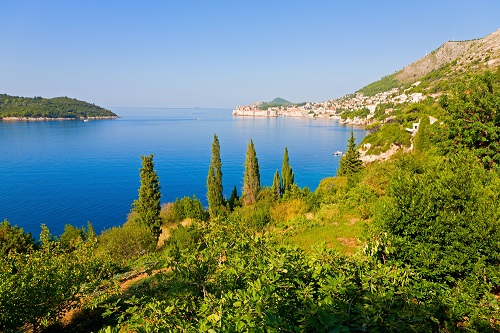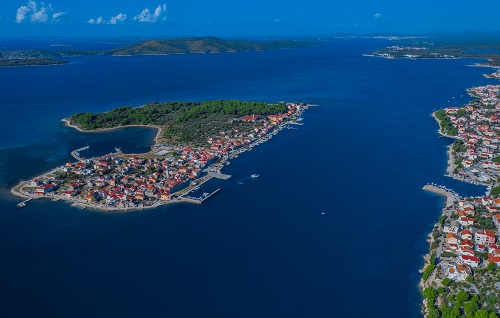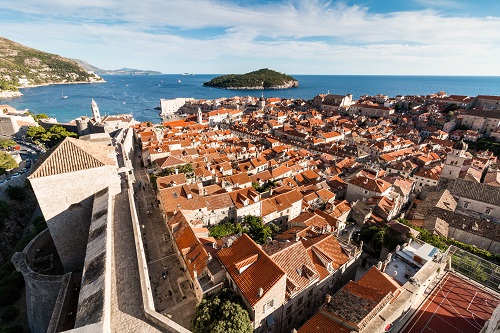If you are living and working in Croatia, or are just visiting the country, you should have relatively little difficulty in obtaining your medication. However, the country does have some restrictions on which medications you can bring into it, so it is advisable to check these, especially if you have a repeat prescription. Once you have arrived in Croatia, you should easily be able to locate a pharmacy, as the country has around 1200 of them. We will look at some of your options below.
What is available?
Note that you may have difficulties in obtaining prescription medication over the counter. If you need a prescription in your home nation, it is likely that you will need one in Croatia, too, although expats report that some pharmacies will issue you with a ‘first time’ prescription medication in an emergency.
Expats also report that medication in pharmacies tends to be the branded kind, so it may be difficult to find the ‘own brand’ drugs (such as ibuprofen or allergy medication) that you can buy in supermarkets and pharmacy chains in the UK.
The Croatian Health Insurance Fund (HZZO, also known as the CHIF) has a consultative body, the Committee for Medicinal Products (CMP), which consists of 13 members. This is accountable for drug assessment and reimbursement. The Croatian Chamber of Physicians is accountable for reviewing CMP decisions.
How much do prescriptions cost?
How much your prescription will cost will depend on whether you have HZZO coverage, have supplementary dopunsko insurance, or are paying out of pocket.
Two reimbursement lists exist for national insurance: the basic (100% drug coverage) and the supplementary (co-payment from 10% to 90%) lists. The basic list covers both hospital and retail drugs, but there is also a special drug list for expensive drugs (mainly hospital drugs). International reference pricing is also established, and list updates are done on an annual basis.

The reference wholesale price of medication is calculated according to the wholesale price of the same medicinal product (identical generic product and identical pharmaceutical form) in Italy, Slovenia, and the Czech Republic. However, if this information is not available, then the prices in the next two countries, Spain and France respectively, are used as the basis of the calculations.
Co-payment exists only for retail drugs. Although there are no formal categories (such as 25% and 50%), the level of co-payment depends on annual jumbo-group referencing. The difference in cost is covered by the HZZO for the cheapest drug in the jumbo group and the price of the medication in question. However, the maximum that you are likely to pay is 74% of the cost of your medication.
Pharmacies are recommended to prescribe the cheapest generic medication, but this is not compulsory. The prescribing of retail products is done according to their brand names, but for hospital products, the prescription is by international nonproprietary names.
How to get the care you need
If you are bringing your medication into Croatia, make sure that it is properly labelled and that you have enough to last for the duration of your visit. You can usually get prescription meds for three months from your GP.
You will find many ljekarna (pharmacies) in Croatia, also known as apoteka, and they are indicated by green neon signs. They are open until 6pm or 7pm on weekdays and 1pm or 2pm on Saturdays, and there are usually 24-hour pharmacies for emergencies. Pharmacy staff may speak a little English or German, but it is advisable to take your medication in its original packaging, along with your prescription. If possible, use medical names rather than brand names, as the latter can differ from country to country.
If you are living in Croatia and are registered with the HZZO, then you will be able to access prescriptions through your GP, including electronic prescriptions. You can then take the prescription and your HZZO card to the ljekarna. You may need to make a small co-payment.

If you have the kind of supplementary insurance known as dopunsko insurance, however, then take your dopunsko card along as well, and this will eliminate your co-payments.
You should be able to pick your medication up straightaway. Ljekarna tend to be dedicated to medication, rather than being general purpose pharmacies.
If you are registered with the HZZO, you will need to be signed up with a family GP. If you obtain a prescription from a private doctor, then this will not be covered under your HZZO insurance. However, if you send it to your family doctor, they can replicate it, and this prescription will be covered.
If you are visiting Croatia, rather than moving there full-time, then you will not be eligible for HZZO prescriptions. You must therefore pay out of pocket for your medication.
It is recommended that, as well as any routine immunisations, you have vaccinations for the following:
• Hepatitis A
• Hepatitis B
• Influenza
• Rabies
Overall, you should find it relatively straightforward to get your medication in Croatia.

